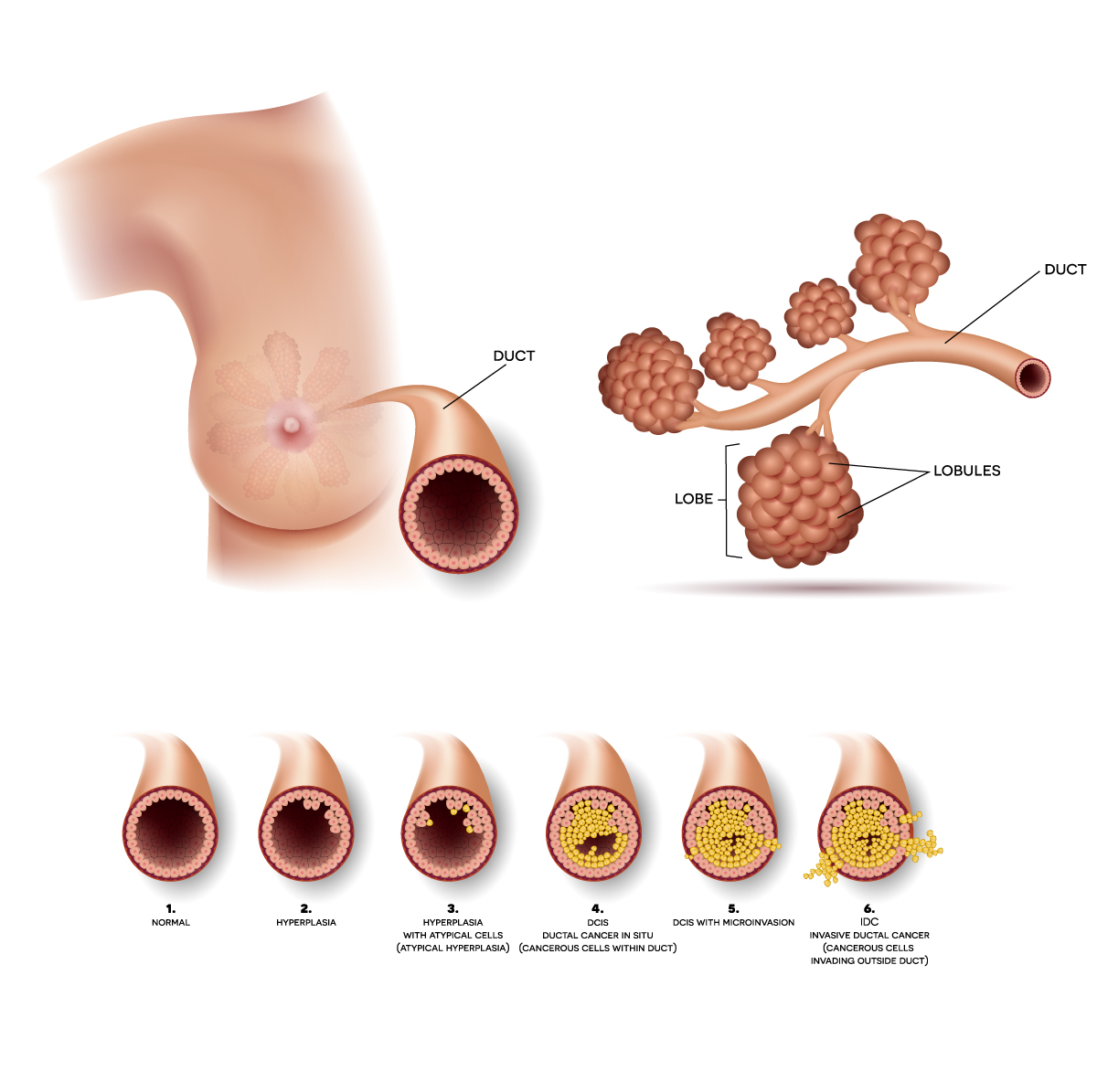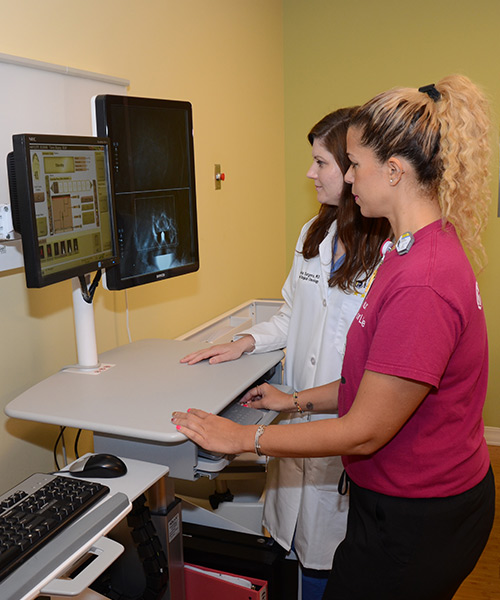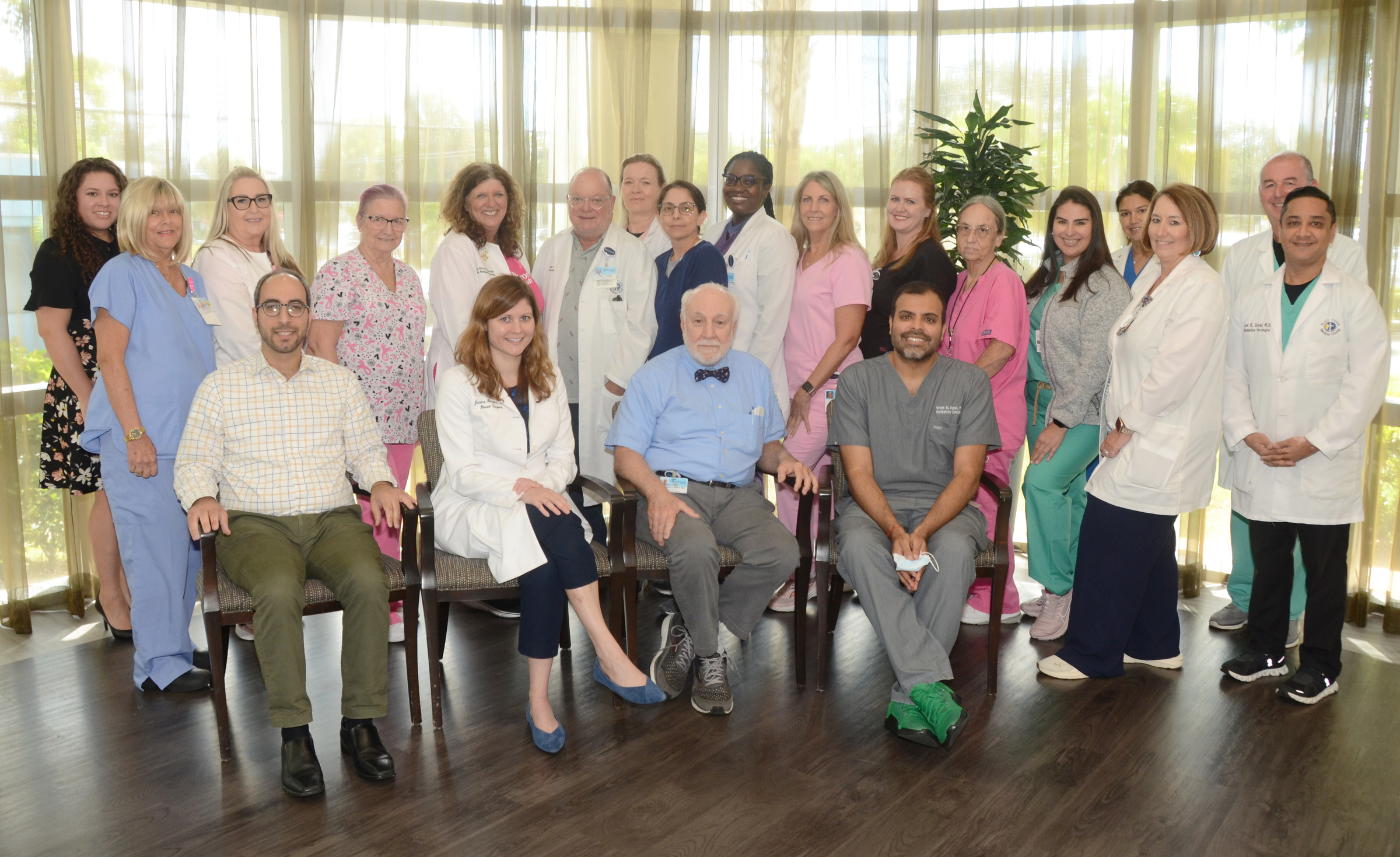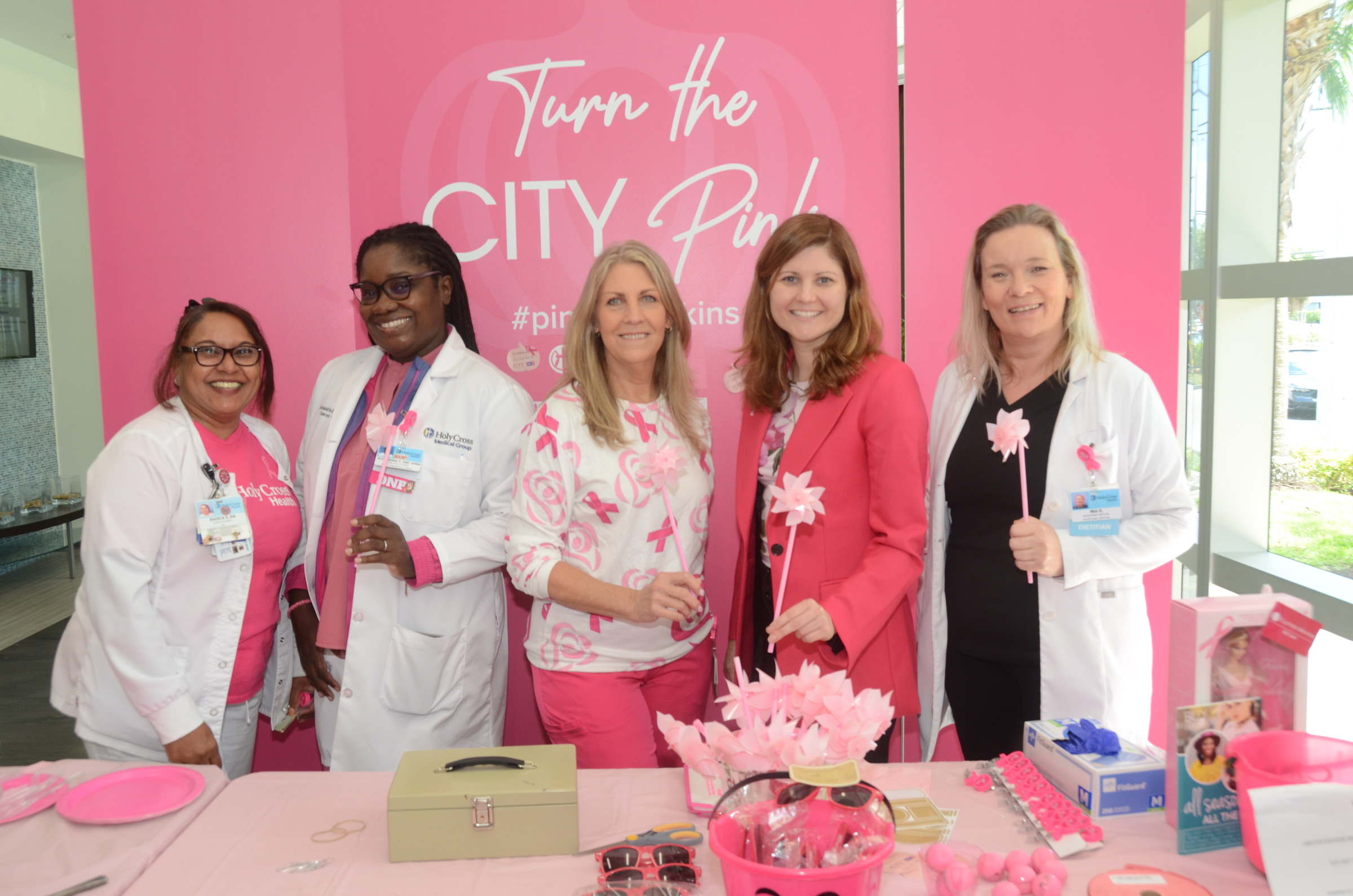Breast Cancer
Comprehensive diagnosis, prevention, and treatment for all types of breast cancer.
Cells in our bodies are constantly growing, dividing and replacing themselves. However, sometimes upon dividing cells can create errors.
Our bodies do a great job at identifying and fixing most errors- however, if cells begin to accumulate errors then they may start to grow more rapidly or begin to behave erratically. Most breast cancers originate in the glandular elements of the breast- the ducts and lobules.
Invasive Ductal Carcinoma
Invasive Lobular Carcinoma
In Situ Carcinoma
Atypical Hyperplasia
Atypical Hyperplasia cells are starting to replicate more rapidly and appear abnormal compared to the typical breast cell. These cells are not cancerous yet but can be considered a marker for increased risk of developing breast cancer sometime in the future. For more information click here.
We all have our individual genetic code and cancer is a result of abnormalities in that code. As a result, no two cancers are alike. When the pathologist identifies invasive breast cancer they go on to further subtype the disease.
How abnormal (aggressive) do the cells appear?
Low grade means the cells look fairly close to normal breast cells, they are least aggressive.
Intermediate grade is in the middle.
High grade means the cells show evidence of being more abnormal and rapidly dividing.
What signals stimulate the cells to grow?
Estrogen Receptor
If positive – this means the breast cancer responds to the estrogen hormone which stimulates it to grow. This influences treatment options because medications can be used to block this receptor.
Progesterone Receptor
If positive – this means the breast cancer responds to the progesterone hormone which stimulates it to grow. This influences treatment options because medications can be used to block this receptor..
HER2 / NEU
This is a protein that stimulates breast cancer cells to grow and spread more rapidly. However, there are specific medications that target the HER2 protein directly. Holy Cross uses immunohistochemistry to determine this:
- A result of 0 or 1 is considered negative
- A result of 3 is considered positive
- A result of 2 is considered equivocal or unclear, so additional testing will be run
HER2 status can also be determined by Fluorescence In Situ Hybridization abbreviated as “FISH.” This test requires the tissue to be sent to a specialized lab and may take a bit longer to result.
Based on the profile breast cancer can be further grouped into subtypes
Luminal A
Luminal B
Basal
HER2 enriched
What is my stage?
Stage is defined as how the cancer is acting within the body and is determined by the following features:
How big is the tumor?
Is it in the lymph nodes?
Has it moved into other organs of the body?
What grade is the tumor?
What is the estrogen/progesterone receptor status?
What is the HER2 status?
Genomic Profiling
This testing may be chosen by the medical oncologist to help them decide what women will benefit from chemotherapy following surgery.
Multidisciplinary Clinic
Surgical Oncology
(Dr Burgers)
Medical Oncology
Radiation Oncology
Genetics Coordinator
Dietician
Social Work
You may not need all these individuals in your final treatment plan- but you can get up to date information within each provider’s area of expertise to gain an outline on your cancer care. Following the clinic, these team members, in addition to a breast radiologist and pathologist, meet together for a group conference to discuss your case and create a consensus for your treatment moving forward. The nurse navigator then communicates to you the group recommendations.
We look forward to meeting you!
Phone
Dr. Burgers' Hours
Monday - Friday:
8:30am - 5pm
4725 N Federal Hwy,
Fort Lauderdale, FL 33308
By Dr. Jessica Burgers | © 2019 All Rights Reserved. Design & Development by Goldman Marketing Group | Sitemap | Privacy Policy | The information available on this web site is provided for informational purposes only. This information is not intended to replace a medical consultation where a physician's judgment may advise you about specific disorders, conditions and or treatment options. We hope the information will be useful for you to become more educated about your health care decisions.






